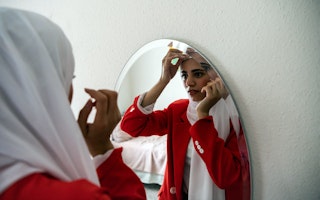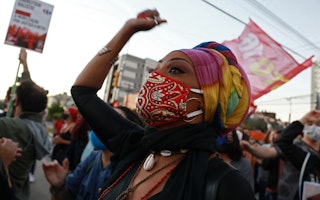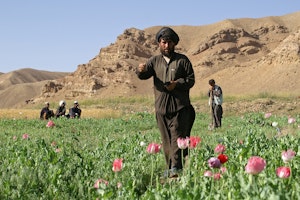Rock and Roll Dreams in Afghanistan
By Javed Rezayee & Jonathan E. Kaplan
Kabul Dreams, the first rock band in Afghanistan to garner international attention, is dealing with some high expectations.
Westerners want the band’s music to address politics and human rights in Afghanistan. They want to know what they think about the security situation, what could happen after the 2014 presidential elections and whether they’re concerned for their own safety. They want Kabul Dreams to make a statement.
But the three young Afghans who launched Kabul Dreams in 2008 just want to write music and sing songs. They want to perform in front of crowds large enough to cover their expenses, and then some. They want logistical support and financing to perform in the United States. They want what all rock and roll bands want: recognition for their music and talent.
They’ve had a string of successes and garnered some international media attention. In April they released their second album, Plastic Words—their first in English—on iTunes. To record it, they hustled to borrow equipment from friends and acquaintances. The album was edited and mixed by an acquaintance in San Diego who they met on Facebook.
The three members of the band grew up outside of Afghanistan. Sulyman Qardash, the band’s singer and songwriter, is an ethnic Uzbek who repatriated from Uzbekistan, where he attended music school. Drummer Mujtaba Habibi, a Tajik, was raised in Iran. Bass player Siddique Ahmed, a Pashtun, grew up in Pakistan. They met in Kabul, played together, and realized they were pretty good.
Still, it isn’t easy being a successful rock band in Kabul.
As accomplished as they’ve become, the band’s members can’t make a living from performing or selling songs. Qardash is a media officer with the Afghan airline, Kam Air, while Ahmed works as a researcher with an NGO.
And, of course, there are security risks.
“We try to ignore a lot of security issues,” Qardash said. “It is a risk we are taking for our baby: Kabul Dreams.”
Their influences include Radiohead, Green Day, the Offspring, and Nirvana, but the diversity of life in Kabul is what truly inspires their music.
Their music does verge on the political, and carries a message that Ahmed would like to deliver to U.S. audiences. Like many other Afghans living in Kabul, he wants the world, especially Americans, to know there's more to Afghanistan than suicide bombings and political instability.
“Kabul has become an art scene,” Qardash said. “People are doing things very differently, very innovatively… We want an Afghanistan where basic human rights are in place, people live a normal life, and women go to school freely. I don’t think it is too much to ask.”
Until February 2016, Javed Rezayee was a program assistant for the Open Society Regional Policy Initiative on Afghanistan and Pakistan.
Jonathan E. Kaplan is the communications officer for the Washington, D.C., office of the Open Society Foundations.


